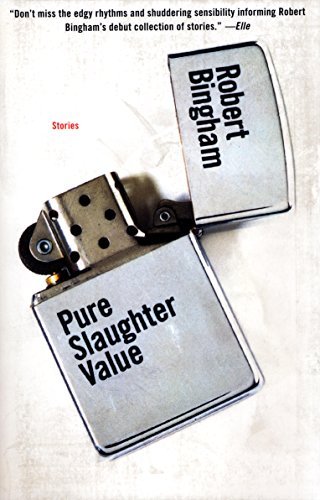What do you think?
Rate this book


208 pages, Kindle Edition
First published January 1, 1997
"Preexisting Condition" was my favorite story from this collection. James is some kind of insurance company bounty hunter, and his specialty is identifying lost-cause addicts and alcoholics whose wealthy families have taken out large policies to cover their indulgent, high-risk lifestyles. He catches them, reports back to the suits, and policies are cancelled. He works in Saint Paul, MN (my own home town), and circulates through a scene of addicts and alcoholics who have been in and out of what I can only guess is Hazelden -- a nearby rehab facility that the author's family had begged him to try. James's primary haunt is a tweaker pad dubbed "The Home for Chronic Inebriates" -- a clapboard house outside of downtown Saint Paul where junkies and drinkers, many of whom are insured by his "various employers," come to recover from their recoveries. No spoilers here, but the absurdity of this story creates just enough paranoia to make me wonder, does MY insurance company employ goons like this?
Changing gears a bit: There's a line from a David Bazan song -- "Dig my new solution for harnessing depravity" -- and that's exactly what Robert Bingham does with this collection. His characters are depraved, entitled, cruel, careless, selfish, self-destructive, insert your choice adjectives here. But let him into your brain and you'll slowly begin to empathize. Robert Bingham makes cowardly antiheroes somehow appealing.
His good friend Stephen Malkmus eulogized him with the song "Church on White," a reference to the cross-streets of Bingham's manhattan loft where Malkmus had frequently crashed on visits to the city. "Promise me you will always be too awake to be famous, too wired to be safe. All you really wanted was everything plus everything, and the the truth. I only poured you half a line." That last line is contested among people who care about these sorts of things, with most arguing for either "half a line," "half a lie," or "half alive." Malkmus would probably sing it differently on every take, but does it really matter? Each version is sufficiently haunting, just as Bingham's stories are.